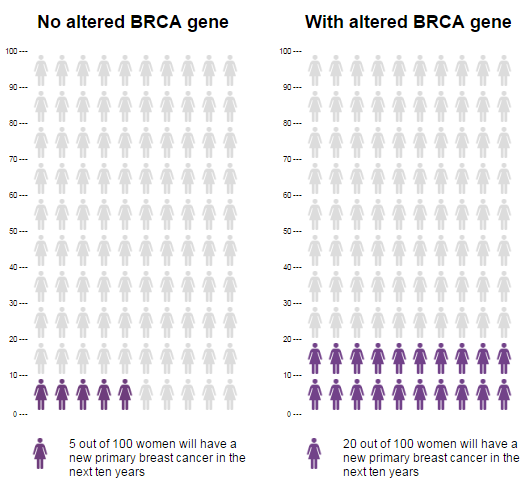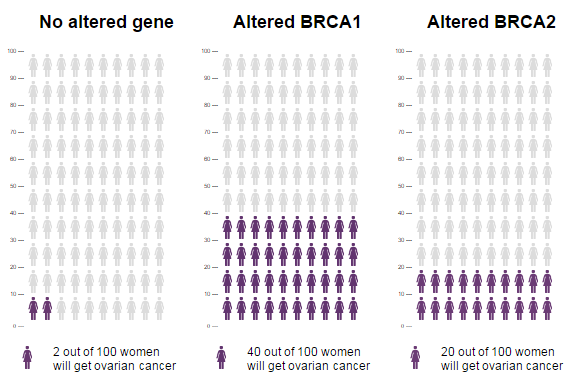Having an altered BRCA gene means that you have an increased chance of developing future cancers. This includes new breast cancers and ovarian cancer (and prostate cancer in men). The next section includes more detailed information about this.
Breast cancer
If I've had breast cancer, what are my chances of having a new primary breast cancer in the next ten years? Click to enlarge

- During the 10 years after diagnosis, women who have altered BRCA genes have about a 20% chance of having a new primary breast cancer on the opposite side. During the 10 years after diagnosis about 5% of breast cancer survivors who do not have an altered BRCA gene have a new primary breast cancer on the opposite side.
Ovarian cancer
The chance of having ovarian cancer over lifetime: Click to enlarge

- Around 2 in 100 women in the general population will get ovarian cancer at some point in their life.
- Around 40 out of 100 women with BRCA1 will get ovarian cancer at some point in their life.
- Around 20 out of 100 women with BRCA2 will get ovarian cancer at some point in their life.
Other cancers
Having an altered BRCA gene can also increase your chances of other cancers, such as pancreatic and skin (melanoma). These cancers are still very uncommon.
Male BRCA2 carriers have an increased chance of developing prostate and breast cancer.




